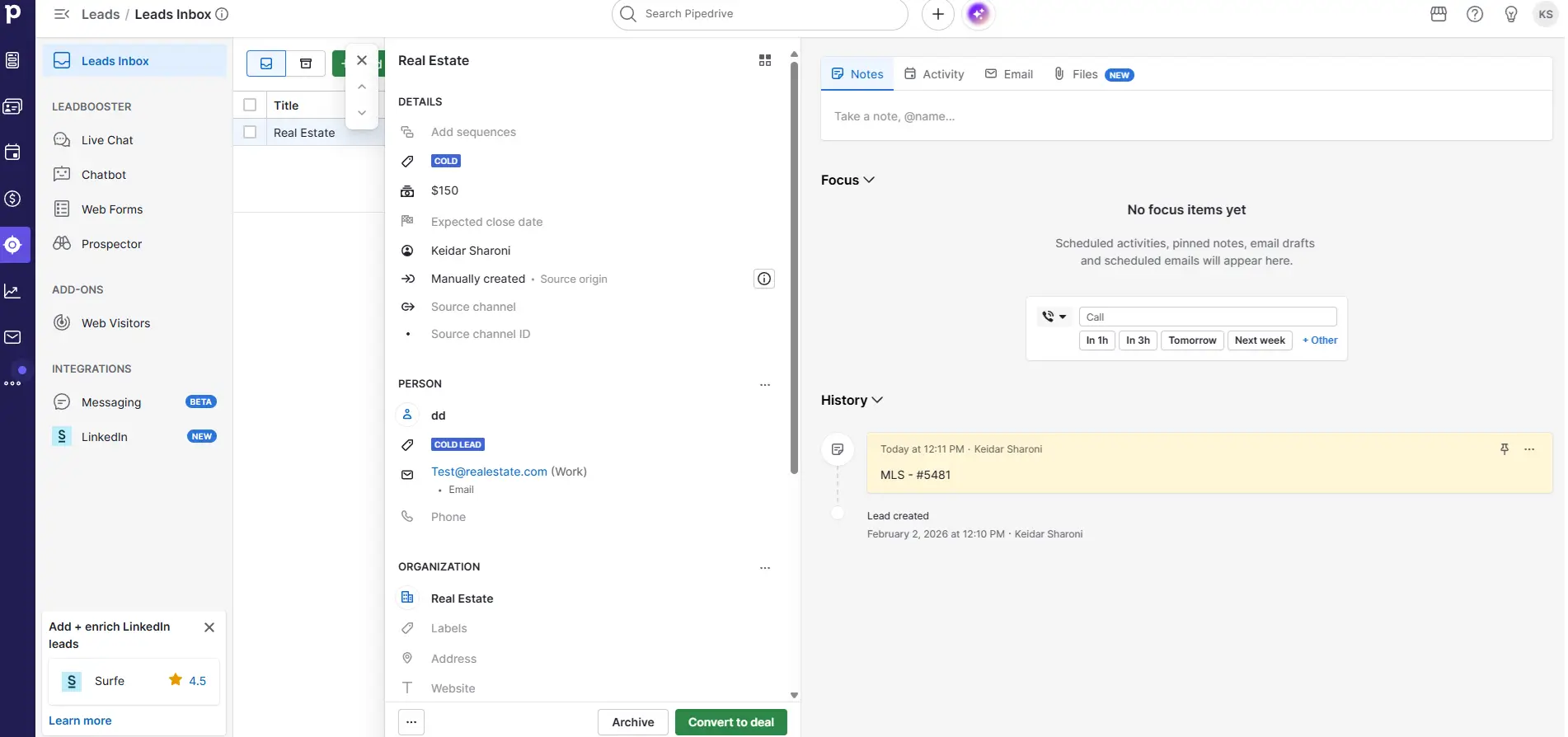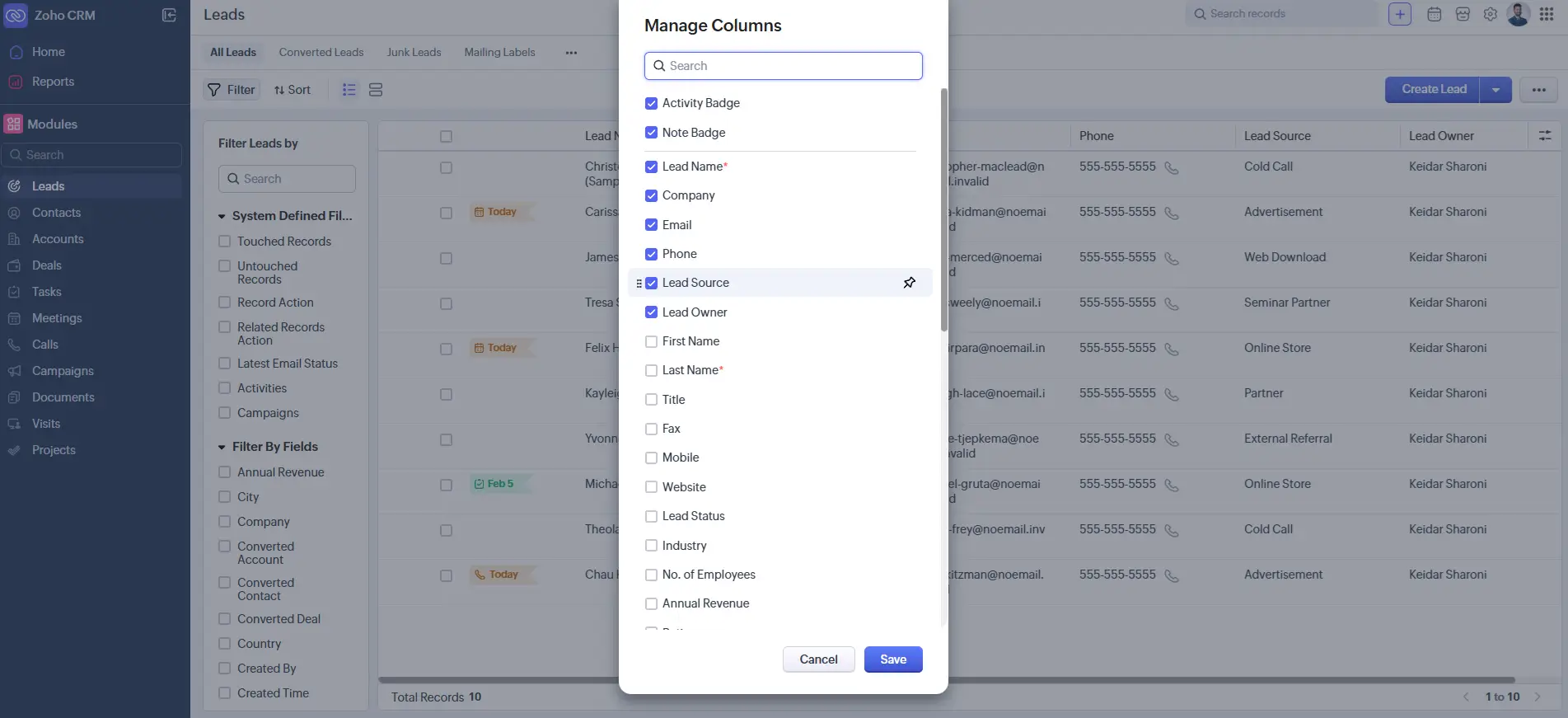Real Estate CRM Explained: How Micro-Agencies Can Outperform Competitors with One Person

For a solo agent or a micro-business with just two or three employees, the greatest obstacle to growth is not a lack of talent but a lack of time. Real Estate CRM, explained in the context of a micro-agency, is a technology-driven force multiplier that allows one person to manage the workload of an entire marketing and administrative department. By centralizing email and text message communications, lead tracking, and calendar management, a cloud-based CRM ensures that a single professional can nurture hundreds of prospects without losing the personal touch that defines small-scale boutique service.
The primary benefit of a real estate CRM for micro-companies is the ability to manage multiple tasks through one centralized interface, handling emails, SMS, and scheduling automatically so the agent can focus on high-value closings.
This in-depth review explores how specific automation tools and AI integrations allow the smallest agencies to maintain a massive digital presence and operational efficiency.
Key Takeaways
- Operational Efficiency: A cloud-based CRM reduces manual data entry by up to 80%, allowing solo agents to spend more time on property showings.
- Lead Response Time: Agencies using automated workflows respond to leads 21x faster, which is the single most important factor in conversion.
- The “One-Person” Advantage: Advanced AI-powered assistance can now draft property descriptions, schedule meetings, and follow up with cold leads without human intervention.
- Cost-Effectiveness: For micro-businesses, the ROI of a CRM is approximately $8.71 for every dollar spent, making it the most profitable investment in a tech stack.
What does CRM stand for in real estate?
To understand the value, we must first define the scope. What does CRM stand for in real estate? It stands for Customer Relationship Management, but in the property sector, it functions as a comprehensive business operating system. Unlike a standard contact list, a real estate CRM is designed to help real estate agents and brokers manage the long, complex journey from “just browsing” to “closing day”.
For a micro-agency, the CRM acts as a digital partner. It tracks clients with their dream locations, budget constraints, and specific property requirements. Instead of an agent trying to remember which lead wanted a three-bedroom house in a specific school district, the cloud-based CRM filters the database and sends an automated alert the moment a matching property hits the market.

How a CRM helps agents stay organized in a micro-business
The biggest “pain point” for micro-real estate companies is the “switching cost”—the mental energy lost when jumping between different apps for email, texting, and calendar management. A professional CRM helps agents stay organized by providing an easy visual interface that brings all these channels into one view.
The Unified Communication Hub
In a micro-business, one person is often the salesperson, the marketer, and the administrator. A CRM solves this by:
- Syncing Email and Text Message: Every interaction is logged under the contact’s profile. You never have to scroll through your phone to find what a client said in a text three weeks ago.
- Integrated Meeting Scheduler: Instead of back-and-forth emails to book a viewing, you send a link. The meeting scheduler checks your availability and adds the appointment to your calendar automatically.
- Back-office Management: Beyond sales, these tools handle back-office management tasks like document storage and contract reminders, ensuring the “boring” legal side of the business stays on track.
Close more sales with AI-powered real estate CRMs
The emergence of AI-powered assistance has been a game-changer for the solo practitioner. Tools like the HubSpot ChatGPT connector or Breeze Copilot allow an agent to query their own data using natural language.
Close more sales with AI-powered real estate CRMs by using these specific features:
- Predictive Follow Up: AI can analyze which leads are opening your emails and visiting your “dream locations” pages most frequently, flagging them as “hot” leads that need a phone call immediately.
- Automated Content Creation: Don’t waste hours writing property descriptions. AI tools can generate professional, SEO-friendly listings and social media posts in seconds.
- Sentiment Analysis: Some advanced CRMs analyze the tone of a client’s email and text message to determine if they are frustrated or excited, allowing you to tailor your response accordingly.
For a micro-agency, this is like having a full-time marketing assistant for a fraction of the cost.
Automating workflows: The solo agent’s secret weapon
The most powerful part of Real Estate CRM explained for small teams is automating workflows. This is the process of setting “If/Then” rules that trigger actions based on lead behavior.
Sample Workflow for a Micro-Agency
- Step 1: A new lead fills out a form on your website.
- Step 2: The CRM immediately sends an email and text message acknowledging the inquiry (The “Immediate Touch”).
- Step 3: The meeting scheduler link is sent 10 minutes later if they haven’t booked a call.
- Step 4: If no response occurs after 48 hours, the CRM triggers a follow up sequence with a link to similar properties in their dream locations.
This entire process requires zero minutes of the agent’s time, yet the client feels prioritized and valued.
Comparison: Manual Management vs. CRM Automation for Micro-Agencies
| Task | Manual (No CRM) | With Real Estate CRM |
| Lead Capture | Manual entry from emails/sticky notes | Automatic capture from web forms & portals |
| Follow Up | “When I have time” (often forgotten) | Automating messaging via drip campaigns |
| Scheduling | 3-5 emails back and forth | Instant booking via meeting scheduler |
| Data Analysis | Guesswork and intuition | Professional reporting and analytics |
| Organization | Spreadsheets and paper files | Easy visual interface with one-click access |
The importance of reporting and analytics for small teams
Even a micro-business needs to know what is working. Reporting and analytics within a CRM provide a high-level view of your “Lead Source” (where your buyers are coming from) and your “Conversion Rate” (how many leads actually turn into commissions).
By reviewing these reports, a solo agent can decide to stop spending money on expensive mailers and instead double down on Facebook ads if the data shows a higher ROI. This prevents the “spray and pray” marketing approach that often drains the limited budgets of micro-companies.

Conclusion: Why every micro-agency needs a CRM
In 2026, the gap between “tech-forward” agents and “traditional” agents is widening. For a micro-company, a CRM is the only way to remain competitive against larger franchises with massive staff numbers. By automating workflows, using AI-powered assistance, and managing all communications through one easy visual interface, you ensure that your business runs 24/7, even when you are out showing houses.
Your Next Step: Don’t let your leads go cold. Evaluate your current process and see how many deals you’ve missed due to slow follow-up. Transition to a modern real estate CRM and start automating messaging today to reclaim your time and increase your sales.
FAQ: Real Estate CRM for Small Businesses
Q: Can one person really run a whole agency with a CRM?
A: Yes. By automating messaging and using AI-powered assistance, one person can handle the lead intake, nurturing, and scheduling that would normally require 2-3 administrative staff members.
Q: What is the best cloud-based CRM for a solo agent?
A: Options like HubSpot offer a “free-to-start” model that is excellent for solo agents, while tools like Follow Up Boss are highly praised for their email and text message integration, specifically for real estate.
Q: Does a CRM help with back-office management?
A: Absolutely. It centralizes document storage, tracks transaction deadlines, and provides reporting and analytics to help you manage the financial health of your business.
Q: How do I track leads with dream locations?
A: You can set “Custom Fields” in your CRM for each contact. When a property matches those specific location tags, the CRM can send an automated messaging alert to that specific client.
Q: Is AI actually useful for a small agency?
A: AI is most useful for small agencies because it acts as a “virtual assistant,” handling content creation and data analysis that you wouldn’t otherwise have the time or budget to perform.




